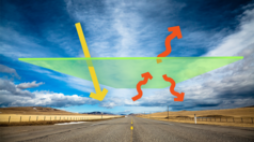- I'm interested in understanding climate science better, and this seemed a better way to get a first-shot overview than diving straight into a textbook like Pierrehumbert's Principles of Planetary Climate or Kaper and Engler's Mathematics and Climate.
- I wanted to see whether there were ideas (both in terms of content and of teaching methods) that I could borrow for my Mathematics for Sustainability course next semester.
- And, I had never taken part in a MOOC (massive online open course) and I was interested to see what the experience is like.
Taxes, Economic “Development,” and Growth Fetishism — State of the States
-
by David Shreve
Many are beginning to sense that there is a diminishing relationship
between increasing gross domestic product (GDP) and broad prosperity ...
2 days ago



